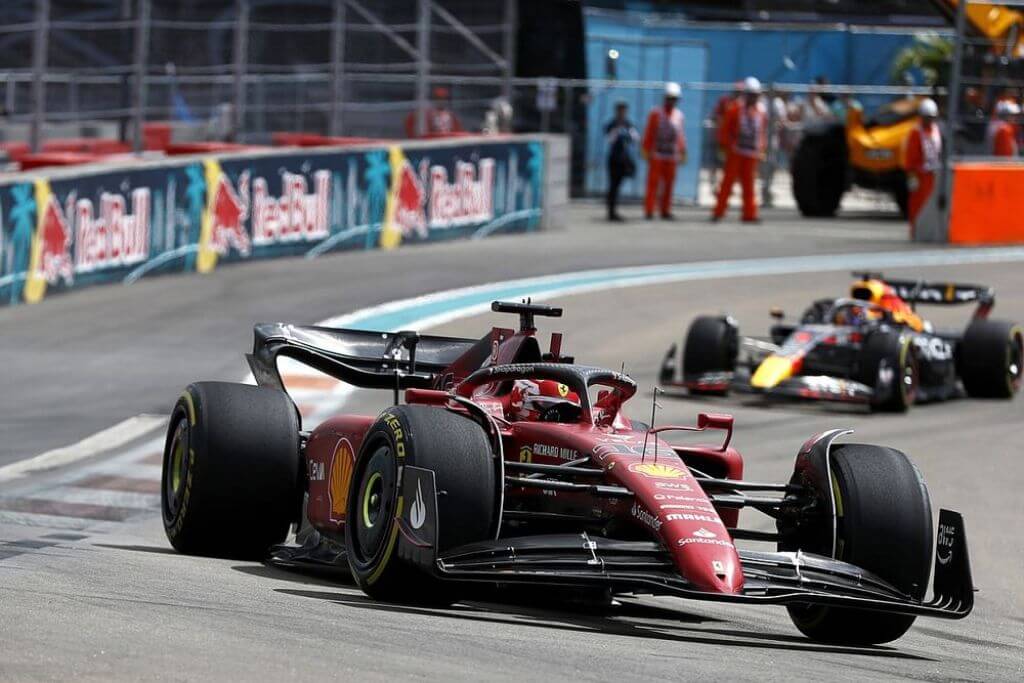Find out more about the cars that have made an impact on motorsport and formed a significant part of history
Adverts
During the history of motor racing, some cars have emerged as true icons that have left remarkable legacies for different reasons. One of these reasons lies in the ability of these cars to introduce revolutionary technological innovations.
By spearheading changes such as the adoption of internal combustion engines, automatic transmissions, four-wheel drive and the promotion of hybrid and electric vehicles, these cars have become catalysts for transformations in the industry.
Another crucial point is the car's contribution to affordability. By redefining production and sales processes, these vehicles have become accessible to a significant portion of the population.
Adverts
This democratisation of the car not only changed the dynamics of the motoring market, but also played a fundamental role in popularising the vehicle as a means of transport.
What's more, these cars weren't just vehicles; they defined entire categories. Whether creating compact cars, hybrid vehicles or electric vehicles, these pioneers set standards that shaped the automotive industry and influenced the future direction of design and engineering.
The presence of these cars has transcended roads and garages, infiltrating popular culture in an indelible way. Whether on the big screen, in music or in other forms of media, these vehicles have become true icons of society, incorporating themselves into the collective imagination and enriching the cultural narrative around the automobile.
These cars, therefore, are not mere vehicles; they are witnesses to crucial moments of change and evolution. They represent the convergence of technology, accessibility, categorisation and cultural influence, marking distinct chapters in the history of motoring.
And as culture continues to evolve, the contemporary cars that parade the streets today carry with them the legacy and heritage of those pioneers who shaped the course of automotive history.
Quick index:
Iconic motorsport models
Ford Model T
Ford's Model T was one of the first cars to be manufactured on a large scale, making it accessible to the general public.
You may be interested:
- Free dental implants in the Smiling Brazil Programme
- Receivables: how to claim on time
- All about the Winter Bono
This vehicle transformed automotive production methods by introducing the innovative assembly line, helping to popularise car ownership and integrating them in an essential way into the daily lives of Americans.
In addition, the Model T played a significant role in the history of vehicles, pioneering the first car to incorporate a four-cylinder engine. This innovation not only increased the car's efficiency, but also reinforced its reliability.
Volkswagen Beetle (1938)
Developed in Germany in the 1930s, the Volkswagen Beetle, affectionately known as the VW Beetle, has earned a prominent position as one of the most iconic and beloved vehicles in motoring history.
Its original conception was aimed at offering an affordable car to the German people, evolving to become a cultural icon recognised worldwide.
In addition to its popularity, the Beetle stood out for its innovative engineering, with features such as the rear engine and air-cooled transmission. These innovations not only contributed to the vehicle's reliability, but also to its economic efficiency.
In addition to its distinctive engineering, the Beetle played a significant role in automotive history as one of the first cars to be produced on a large scale outside the United States, marking a significant change in global car production standards.
Tesla Model S (2012)
The Tesla Model S has played a crucial role in transforming the outlook towards electric vehicles. Before its introduction, electric cars were often associated with limited performance and restricted range.
However, the Model S revolutionised this view by offering high-speed performance and impressive autonomy. This paradigm shift was essential in demystifying previous notions about the viability and capacity of electric vehicles.
In addition, the Model S has innovated by incorporating cutting-edge technologies such as the lithium-ion battery system, the touchscreen on the dashboard and the self-driving functionality. These advances have positioned the Model S as the first high-performance, technologically advanced electric car capable of competing on equal terms with combustion vehicles.
The impact of the Model S has not only been limited to its category; it has played a fundamental role in the history of the electric car, contributing significantly to the rise in popularity and acceptance of this form of sustainable mobility.
Mini (1959)
The Mini played a key role in revolutionising both the design and engineering of compact cars. Before its introduction, small cars were often associated with characteristics such as slowness and lack of safety.
However, the Mini redefined this perception by presenting an innovative design and intelligent engineering that maximised the space inside a compact vehicle. This visionary approach not only challenged existing conventions, but also made small cars more attractive and functional.
In addition, the Mini's relevance extended to its economic efficiency, making it accessible to a wide range of consumers. This affordability contributed significantly to its popularity and consolidated its position as an influential vehicle in automotive history.
The Mini isn't just a car; it's an icon that has transcended decades, being produced for more than 40 years. Its impact goes beyond the roads, influencing the production of compact cars on a global scale and leaving a lasting mark on the evolution of automotive design and engineering.
Porsche 911 (1964)
O Porsche he 911 played a crucial role in setting the standard for what defines a high-performance sports car. Its unique fusion of performance, handling and style not only elevated it to prominence, but also made it a cultural icon in the world of sports cars.
What's more, the 911's importance extends to its ability to constantly evolve over the decades. By keeping up with the latest technologies, the model has managed to adapt without losing the essence that has made it exceptional since its inception.
This constant reinvention has cemented the Porsche 911 as one of the most enduring and influential cars in automotive history. With over 50 years of production, the 911 remains one of the most coveted and recognisable sports cars in the world, reaffirming its position as an undisputed icon on the global automotive scene.
Conclusion
To summarise, the cars mentioned have played different but equally important roles in the history of motorsport. Each one has helped to mould consumer perception, introducing innovations, challenging conventions and setting standards that have transcended decades.
Whether revolutionising the view of electric vehicles, redefining the concept of compact cars or setting the standard for high-performance sports cars, these cars have become icons, leaving an indelible mark on global automotive culture.
Their legacy endures, influencing the design, engineering and evolutionary narrative of vehicles, highlighting the significant role they play in the trajectory of motorsport.
You might be interested:
Did you like this content? Share it with your loved ones and save it to your favourites for future reference.


















